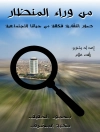This electronic version has been made available under a Creative Commons (BY-NC-ND) open access license. This
is the first book to situate the territories and collective identities of former Yugoslavia within the politics of race – not just ethnicity – and the history of how ideas of racialised difference have been translated globally. The book connects critical race scholarship, global historical sociologies of ‘race in translation’ and south-east European cultural critique to show that the Yugoslav region is deeply embedded in global formations of race. In doing this, it considers the everyday geopolitical imagination of popular culture; the history of ethnicity, nationhood and migration; transnational formations of race before and during state socialism, including the Non-Aligned Movement; and post-Yugoslav discourses of security, migration, terrorism and international intervention, including the War on Terror and the present refugee crisis.
Cuprins
Introduction: what does race have to do with the Yugoslav region? 1 Popular music and the ‘cultural archive’ 2 Histories of ethnicity, nation and migration 3 Transnational formations of race before and during Yugoslav state socialism 4 Postsocialism, borders, security and race after Yugoslavia Conclusion Index
Despre autor
Catherine Baker is Senior Lecturer in Twentieth Century History at the University of Hull












